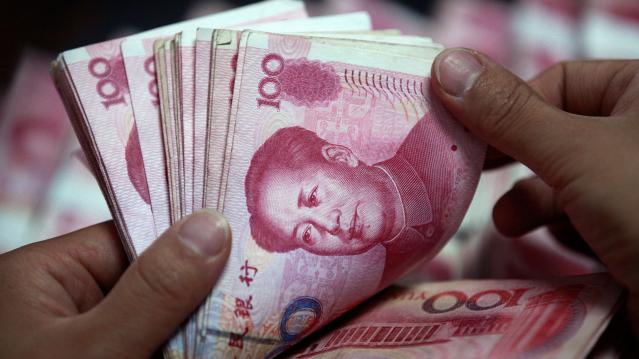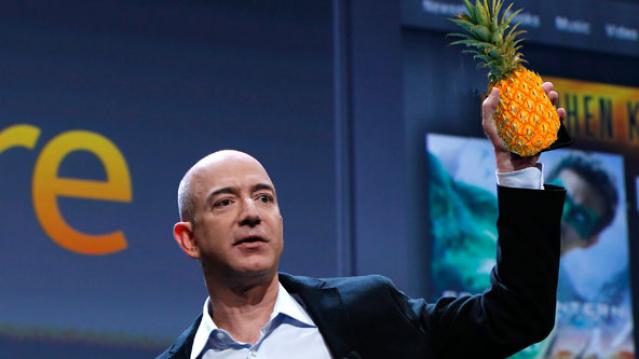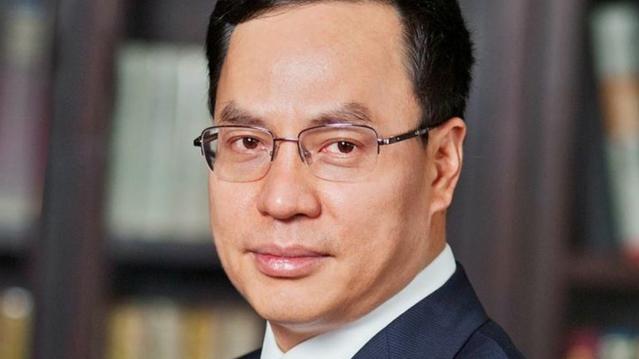These Students Are Making Even More Than They Expect After Graduation
College students who major in STEM fields generally know that they can make more money than their peers once they graduate, but they don’t know how much more.
Turns out, those students majoring in science, technology, engineering and math, actually have starting salaries that are higher than expected, according to a new report by the National Association of Colleges and Employers.
Engineering majors, for example, expect to earn $56,000, but actually receive 15.5 percent more than that, with starting salaries average nearly $65,000. Computer Science majors expect to make around $51,000, but receive 22 percent for an average starting salary of $62,000.
Chemistry majors have the largest gap between expectations and reality: They expect to earn an average of $39,000 but take home an average $58,000 in their first year, a 51 percent increase.
Related: The Closing of the Millennial Mind on Campus
The typical college graduate in 2014 received a starting salary of $48,000. Liberal arts and humanities majors had the lowest starting salary, with an average of just $39,000, according to NACE.
Not only do STEM majors enjoy higher salaries, but they can also expect more job security and better job prospects. All of the top 25 jobs recently compiled by U.S. News and World Report fell into either a science- or math-based discipline.
Still, not everyone has the interest or aptitude to excel in a STEM career. A third of those who begin their college career majoring in those fields end up transferring to a difference study area, according to a recent report by RTI International.
Billionaires: 10 Intriguing New Facts About Who’s Getting Rich Now

A new Chinese billionaire was created almost every week in the first quarter of 2015, according to a just-released report by UBS and PwC.
"Asia's billionaires make up 36 percent of self-made billionaire wealth, overtaking Europe for the first time and second only to the U.S.," said Antoinette Hoon, private banking advisory services partner for PwC in Hong Kong. “Looking forward, we expect the region to be the center of new billionaire wealth creation.”
Related: 6 Traits of an Emerging Millionaire: Are You One?
The report, which looked at data for 1,300 billionaires over 19 years, found – unsurprisingly -- that entrepreneurship is a powerful force for wealth creation. “Billionaires: Master architects of great wealth and lasting legacies" also noted that many billionaires are embracing philanthropy to build a legacy.
Here are 10 other findings of the report:
- 917 self-made billionaires generated more than $3.6 trillion of global wealth between 1995 and 2014.
- Of them, 23 percent launched their first business before age 30; 68 percent before turning 40.
- The second-highest number of self-made American billionaires (27.3 percent) in the last two decades came out of the tech sector.
- Finance produced 30 percent of U.S. billionaires, but they aren’t as rich as their counterparts in tech; their average net worth is $4.5 billion, compared with $7.8 billion for tech moneybags.
- In Europe and Asia, self-made billionaires mostly made their money in the consumer industry. Their wealth averages $5.7 billion. Tech entrepreneurs in Europe and Asia were the second-richest group with an average worth of $3.8 billion.
- More than two-thirds of global billionaires are over 60 years old and have more than one child.
- The average age of Asia billionaires is 57, 10 years younger than in the U.S. and Europe.
- About one fourth of Asian billionaires had impoverished childhoods, compared with 8 percent in the U.S. and 6 percent in Europe.
- 60 percent of self-made billionaires in the U.S. and Europe retain their businesses, 30 percent dispose of part of their business via an IPO or trade sale, with 10 percent selling outright.
- In Europe and Asia, billionaires are most likely to create a business dynasty, with 57 percent of European and 56 percent of Asian billionaire families, respectively, taking over the family business when the founder retires. In the U.S., just 36 percent of businesses remain family-run once the founder retires.
Hollywood Box Office Fail: A Memorial Day to Forget

For years, Memorial Day weekend has been the unofficial beginning of summer blockbuster season, with the multitudes rushing in to enjoy free air conditioning, buttered popcorn and big explosions. And though Hollywood has started releasing its blockbusters earlier and earlier (Marvel/Disney, in particular seems to love the first weekend in May), the audiences don’t seem to have gotten the message.
Tomorrowland, the weekend’s No. 1 grossing film, took in an unimpressive $40.7 million, just ahead of 2010’s groan-worthy Prince of Persia on the list of holiday weekend openers.
Memorial Day 2015 was the worst holiday weekend for Hollywood since 2001, when Michael Bay’s infamous WWII flop Pearl Harbor graced the screens. Considering the 44 percent increase in ticket prices over that time, this is a particularly bleak outlook for theaters.
Related: 13 Movies You Should See This Summer
Tomorrowland only barely beat Pitch Perfect 2, in its second week of release.
In 2014, X-Men: Days of Future Past took home $110.6 million, while the previous year had the sixth entry in the Fast and the Furious franchise to drive $97.4 million domestically.
The news is better internationally, where the most recent Avengers film (Avengers: Age of Ultron) continues to rake in the yuan, millions at a time. But the outlook for the rest of the domestic season is less rosy, with no obvious saviors later in the summer (Jurassic World, maybe?).
It’s not even June yet, but it is already looking like a chilly summer for Hollywood.
Here’s Why Your Breakfast Just Got Way More Expensive

You’re going to have to start shelling out a lot more for your eggs.
U.S. farmers in 20 states have killed more than 40 million chickens and turkeys since December, including about a third of the commercial, egg-laying birds in Iowa, as the United States experiences its biggest-ever bird flu outbreak.
The diminishing poultry population has led to an egg supply crunch, pushing prices some 85 percent higher, according to The Wall Street Journal. Economists say prices could spike another 20 to 30 percent.
The outbreak comes just as eggs are returning to favor with consumers after years of fighting perceptions that they’re unhealthy. In 2013, Americans consumers munched on more than 250 eggs per capita, the highest rate in six years.
Related: Minnesotans in contact with avian flu birds getting preventive drugs
Last year, the U.S. poultry industry produced nearly 100 billion eggs. USDA associate deputy administrator Jack Shere told the Associated Press that the avian flu could cost the U.S. taxpayers about $400 million this year.
Big Food companies are already considering changes to their menus and their pricing following the shortage. McDonald’s, Panera Bread, and General Mills, The New York Times reports.
The last serious avian flu outbreak in the United States occurred in 1983 and led to the killing of 17 million chickens, turkey, and guinea fowl in Pennsylvania and Virginia. While avian flu spread to humans in Asia in 2003, the Centers for Disease Control considers the risk to people from the current strain to be low.
Amazon’s Jeff Bezos Has Gotten $9.5 Billion Richer This Year

The stock market has inched its way to one record high after another this year, with the S&P 500 gaining a solid if unspectacular 3.5 percent so far. That rise has enriched investors by some $900 billion in 2015, as Matt Krantz at USA Today points out.
As Krantz also notes, though, some shareholders have done far, far better than the broader market. Jeff Bezos, for example.
The Amazon CEO has benefitted from a 40 percent rise in his company’s stock in 2015, adding a whopping $9.5 billion in paper gains to his already sizable net worth to lift it to $38.2 billion, good enough for 11th highest in the world, according to Bloomberg’s Billionaires Index.
Related: 7 Quirky Economic Indicators – from Dogs to Guns
As well as Bezos has done, four foreign billionaires have actually made more in 2015: Pan Sutong, chairman of Hong Kong investment conglomerate Goldin Group, has made more than $20 billion; Wang Jianlin, the founder and chairman of another Chinese conglomerate, Dalian Wanda, has made $19.4 billion; Zhou Qunfei, China’s richest woman, has added nearly $11 billion; and Patrick Drahi, the French chairman and largest shareholder of Luxembourg-based telecom company Altice, has gained $9.7 billion.
Bezos may be far ahead of the U.S. pack, but the USA Today analysis of data from S&P Capital IQ shows some other CEOs of American companies have fared extremely well as a result of their stock holdings, too. Facebook’s Mark Zuckerberg has made more than $1 billion on paper, while Google’s Larry Page has gained just under $1 billion. And as shares of drugstore chain Walgreens Boots Alliance have surged more than 11 percent this year, acting CEO Stefano Pessina has profited to the tune of $645.6 million. The CEOs of salesforce.com, Under Armour, Starbucks, Mohawk Industries, Constellation Brands and Netflix have all seen paper gains of more than $260 million so far in 2015.
You can see USA Today’s full list here.
This Man Just Lost $15 Billion in a Half Hour

In the history of sudden wealth loss, Li Hejun may have set a new record.
Li, who was China's richest man until this week, saw his fortune drop by as much as $15 billion in a half-hour as the stock in his company, Hanergy Thin Film Power Group, fell by nearly half. Trading in the shares was halted Wednesday and Li didn't attend the company's annual meeting.
While plenty of billionaires have seen their fortunes cut in half over time, few if any have seen $15 billion wiped out in a half-hour. Li's total fortune was around $30 billion before the stock plunged.
Prior to the drop, the company's shares had risen by more than fivefold since September, baffling analysts. Reuters reports that Hong Kong regulators are looking at alleged market manipulation with the stock.
Related: America’s Highest Paid CEO: It’s Not Who You Think
In a similar wealth decline, Hong Kong property and electronics magnate Pan Sutong has lost more than $11 billion this week as shares of two listed companies, Goldin Financial and Goldin Property, both closed down more than 40 percent.
Pan owns around 65 percent of Goldin Property and more than 70 percent of Goldin Financial, according to filings. His fortune was listed at more than $28 billion, making him Hong Kong's second-richest man.
That means that the two men have lost more in one day that the total net worth of Carl Icahn, Steve Ballmer or Michael Dell.
Pan is known for his large lifestyle. He's a big polo supporter and has sponsored a polo event in Britain attended by Princes William and Harry. He's said that the sport "is a way of life and belief in a sense of nobility."
Pan also owns vineyards around the world, including three in France and one in California's Napa Valley, called the Sloan Estate, which he purchased in 2011 for around $40 million.
This article originally appeared on CNBC
Read more from CNBC:
Playboy keeps it's clothes on
Kickstarter darling Pebble may be in a rough patch
McDonald's CEO: Ronald is here to stay

